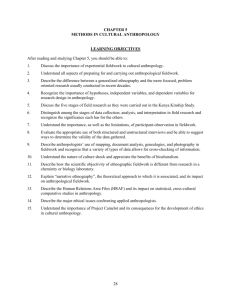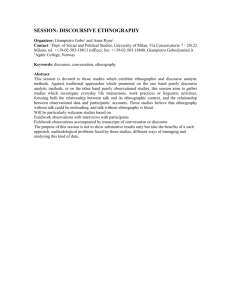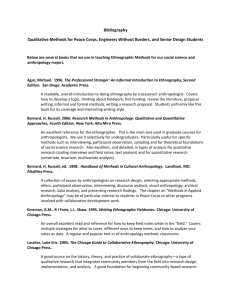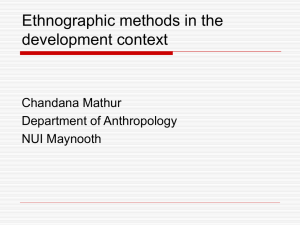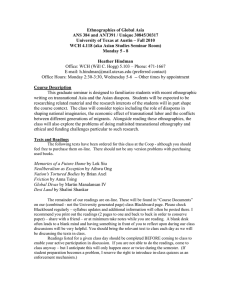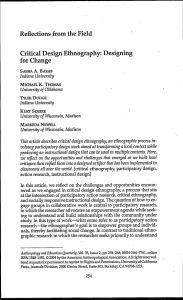1. On authority grounds (who has the power to construct how)
advertisement
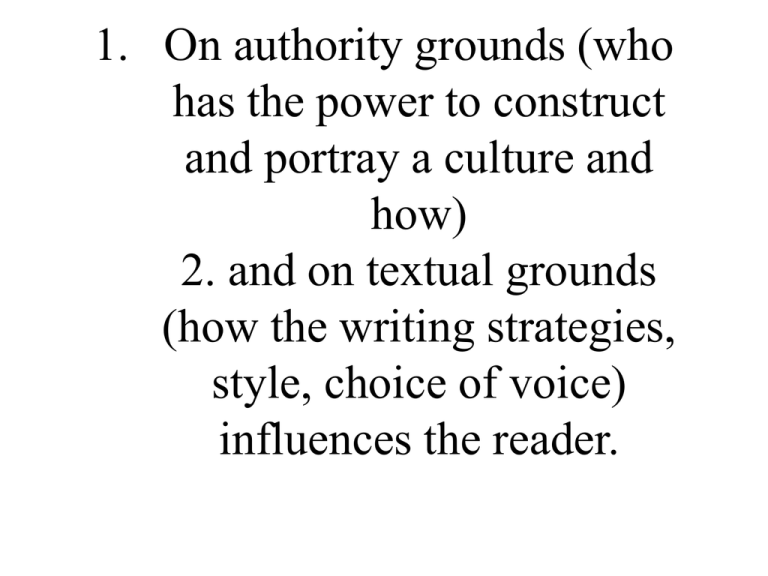
1. On authority grounds (who has the power to construct and portray a culture and how) 2. and on textual grounds (how the writing strategies, style, choice of voice) influences the reader. History of fieldwork in anthropology From Armchair anthropology to the field origins of participant observation Beginning the fieldwork process Selection of project, funding Preparing for the field Working in the Field Site selection Gaining rapport Exchanges and gift giving Factors influencing fieldwork Culture shock Fieldwork techniques Theoretical considerations Participant observation Interviews and questionnaires Recording Culture Field notes Tape recording, photography, videos and films Data analysis Analysing data Writing process Ethical issues in cultural anthropology and dangers in the field Role of the anthropologists towards people being studied Discussion Questions 1. Why do you think it is important to learn about the historical background of anthropological ethnography? What is the relationship between ethnography as a process and ethnography as a product? How can we understand about cultures through ethnography? Give examples from the readings and/or lectures. 2. Considering lectures and readings about “Coming of Age in Samoa”, can there be a “falsification of a 1928 ethnography by another written in 1083? Why?


